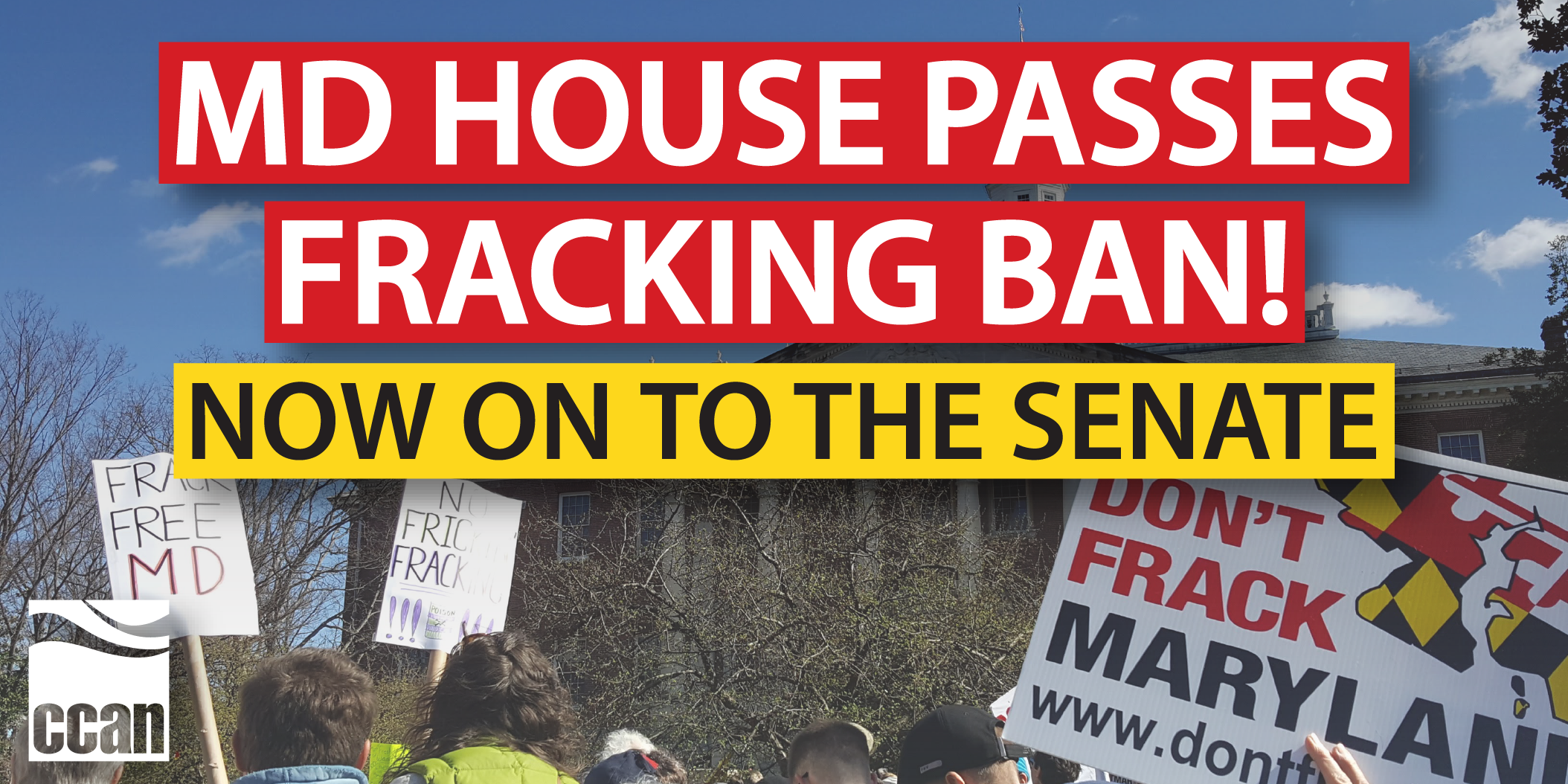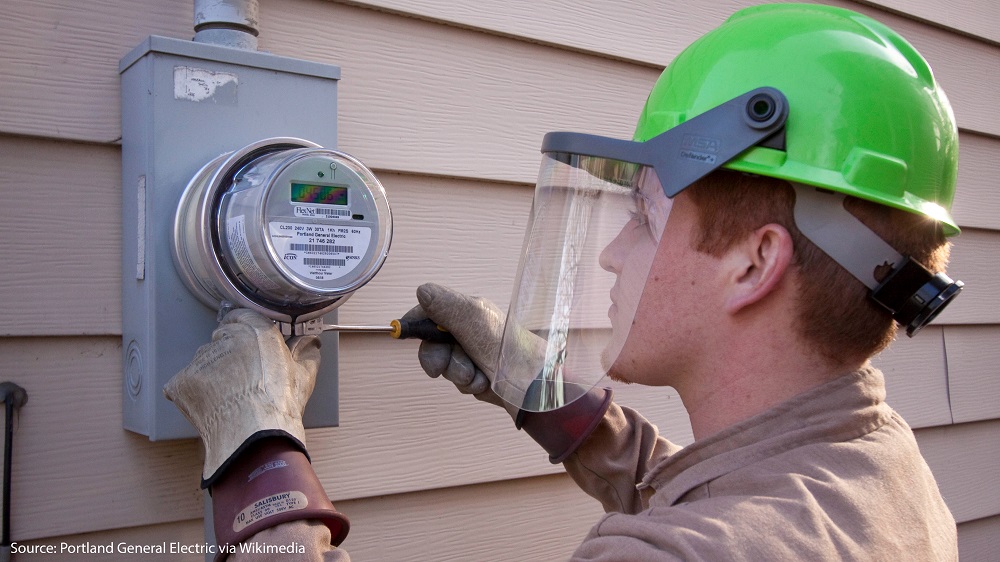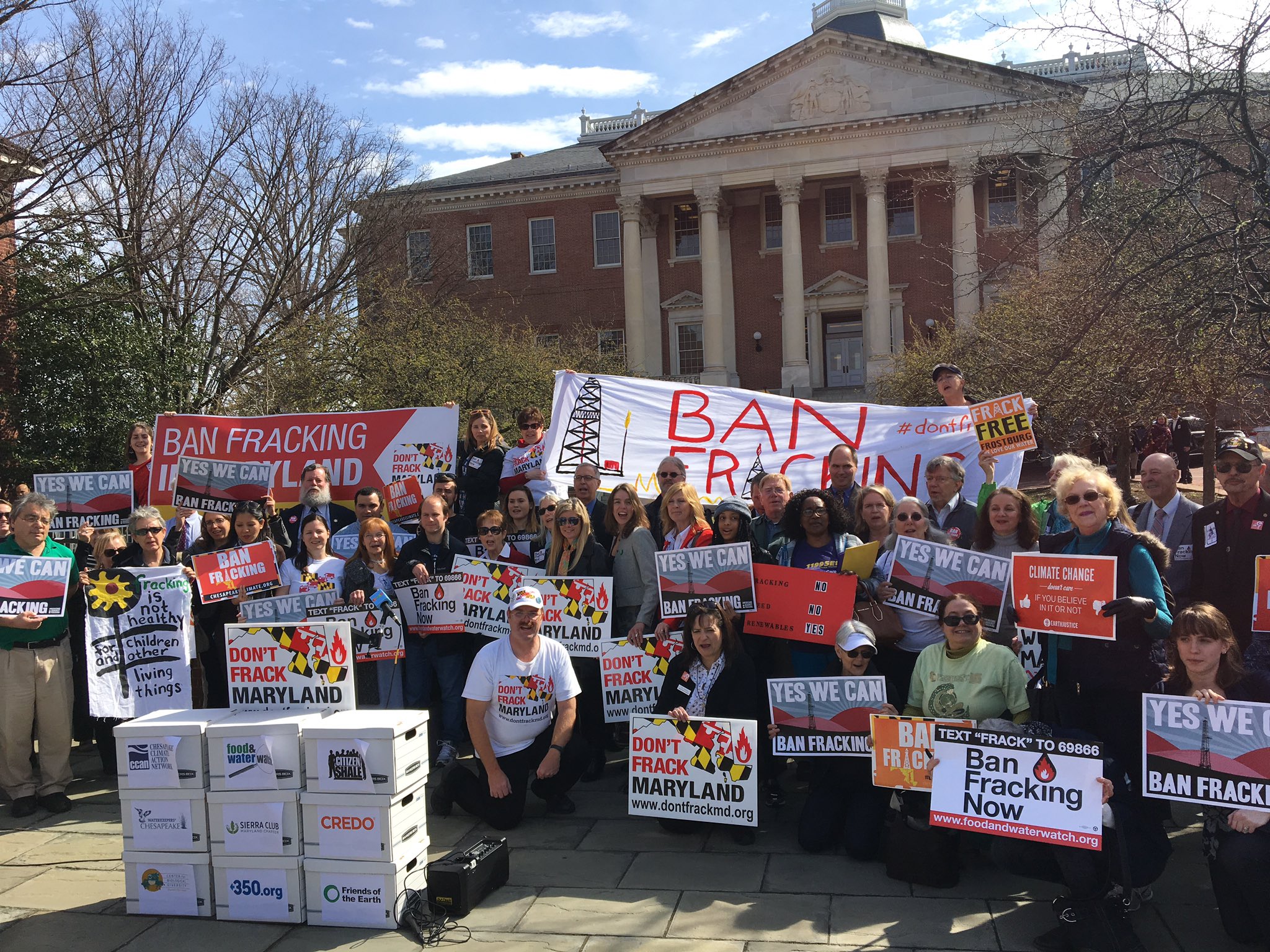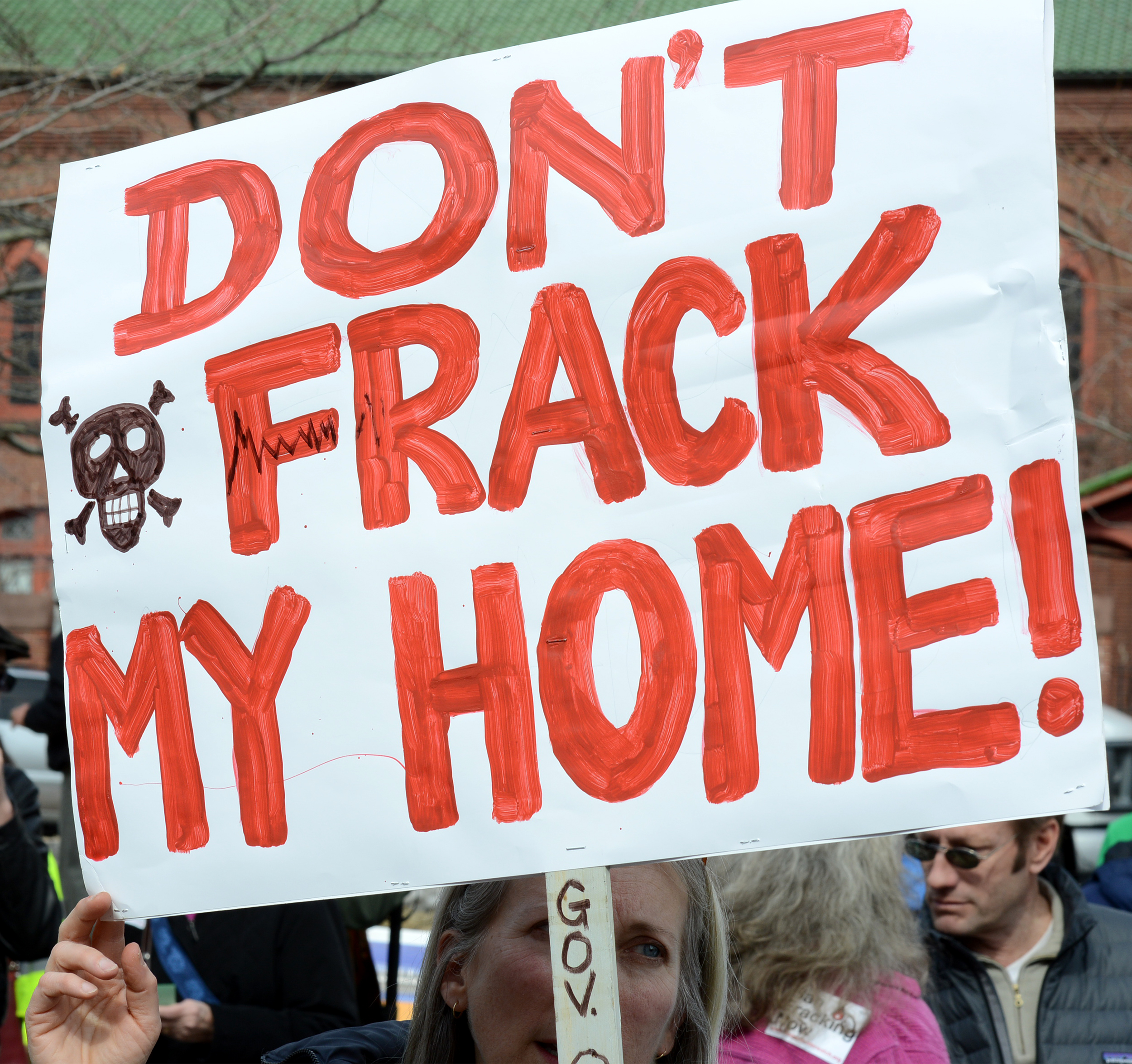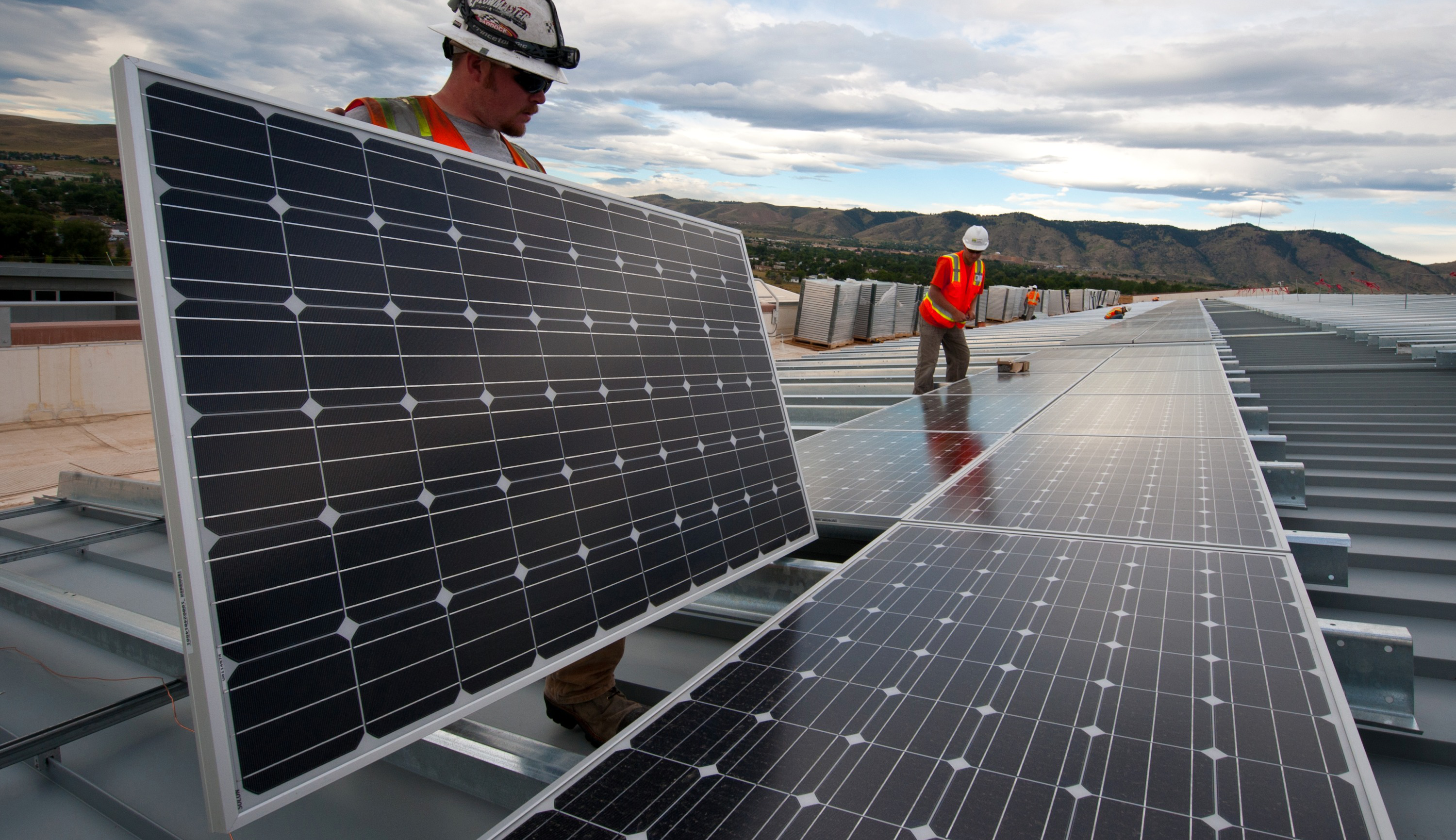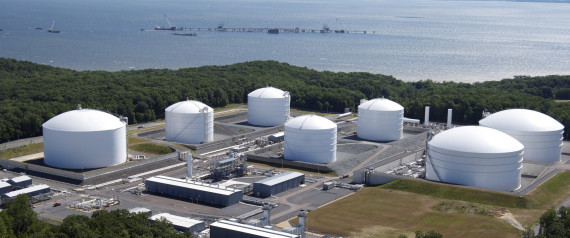The Maryland House of Delegates passed a bill to ban fracking by a vote of 97 to 40. Advocates now call on the Senate to pass the ban bill.
Annapolis, MD — The Maryland House of Delegates passed a milestone fracking ban bill today with unprecedented bipartisan support. House Bill 1325, which passed by a vote of 97 to 40, would ban hydraulic fracturing statewide.
Public opposition to the practice has grown over the past year, as over a dozen counties and cities across the state have already passed local resolutions and ordinances to ban fracking and more than 1,000 Marylanders marched through the state capitol last week to demand a fracking ban.
“We cannot afford to put our health, our ecology, or the growing economy of Western Maryland at risk for fracking. That is why a total ban is necessary and supported by the people of Maryland,” said Kumar Barve, Chairman of the House Environment & Transportation Committee that put forth the bill.
“As a longtime proponent of legislative initiatives to protect Maryland from the dangers of fracking, I commend the Maryland House of Delegates for voting in support of a fracking ban,” said Delegate David Fraser-Hidalgo who introduced the bill. “Across the country, fracking is polluting the air and water of countless communities and making people sick. The passing of this bill is a huge step forward in securing Maryland as a national leader in combating climate change and protecting our citizens.”
“Marylanders have made it loud and clear that they want to keep the reckless oil and gas industry out of our state. With this vote, the House has listened to our constituents and learned from the destruction that other states already face to avoid damage to our own precious natural resources,” said Shane Robinson, Montgomery County Delegate. “Our quest for economic opportunities and growth in Maryland will not come at the expense of safe drinking water, clean air, public health and a thriving tourism industry.”
Residents from across the state have sent more than 35,000 petitions and letters in support of a ban to the General Assembly. More than 200 businesses, the majority from Western Maryland, and over 200 Maryland health professionals sent letters to the General Assembly in support of the bill.
“The passing of the fracking ban bill through the House by a 57 vote margin is truly a watershed moment for Maryland,” said Mitch Jones, Senior Policy Advocate at Food & Water Watch. “The current overwhelming support from Maryland delegates shows an understanding that without a ban, public health and local businesses cannot be protected. We applaud this critical step towards preserving the resources and economy of Maryland and call on the Senate to follow the lead of the House.”
“This is a great victory for all of Maryland for our economic future, our public health, and preserving our natural resources for generations to come,” said Karla Raettig, Executive Director of Maryland League of Conservation Voters. “We applaud the Maryland General Assembly House for their bipartisan action in protecting their constituents from this dangerous practice and urge the Senate chamber to do the same.”
“Today, the Maryland House of Delegates stood up for the people of Maryland in passing a ban on fracking,” said Mike Tidwell, Executive Director of Chesapeake Climate Action Network. “This bill’s passage is the culmination of an immense grassroots movement that has been growing for years. We commend the Maryland House for working to protect the health of their citizens and the climate over Big Oil profits.”
###
Contact: Jackie Filson, Food & Water Watch; 202-683-2538; jfilson@fwwatch.org

